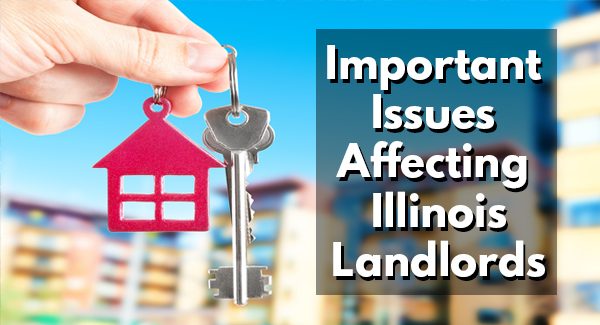Not to be confused with the City of Chicago’s Residential Landlord and Tenant Ordinance (RLTO), the Residential Tenant Landlord Ordinance (RTLO) was adopted on January 28, 2021 and applies to most suburban Cook County communities.
Going into effect on June 1, 2021, the RTLO has a lot in common with its City of Chicago counterpart. Both ordinances are tenant-friendly with numerous pitfalls for landlords and steep penalties for violations.
For suburban Cook County communities, it is imperative to conform procedures, leases, and policies to the requirements of the RTLO prior to the effective date.
Properties Covered by the Ordinance
Like the Chicago RLTO, the Cook County RTLO is broad and covers almost all residential rental property within county limits with just a few exceptions.
Like the Chicago ordinance, the RTLO’s definition of a dwelling unit is very broad. It includes the residence as well as the common areas, housing services, furnishings, facilities, and privileges supplied in connection with occupancy of the unit. If a property has a garage or parking area on premises, that is subject to the standards of the ordinance as well.
Lease Compliance
The Cook County ordinance provides that the new requirements apply to new rental agreements and renewals with lease terms that start on or after June 1st, 2021.
If you have already signed a noncompliant lease for a tenant that is moving in on or after June 1, you should have the tenant re-sign a compliant lease before the RTLO goes into effect.
Lease Disclosures
For a lease to be compliant under the RTLO, it must disclose:
- Who pays the utilities (Note: many leases already specify whether the tenant or landlord is responsible for paying to comply with the Tenant Utility Payment Disclosure Act, but it is a stipulation of the RTLO as well)
- Annual estimated cost of utility service
- Itemized list of costs that make up the move-in fee
- Contact information of the unit owner or authorized manager of the property
- Contact information of the person who can accept service of process, notices, and demands
- Any code violations/utility shutoffs during 12 months prior to tenancy, and any pending building code enforcement litigation with case number and list of cited violations
- for the unit and common areas (Note: Most landlords who own and rent out a single unit within a larger community association are responsible for investigating and disclosing any code violations or utility shutoffs that occurred on premises. A failure to disclose any of the above information means the landlord is in violation of the Cook County RTLO.
And the landlord must attach to the lease:
- EPA Bed Bug Pamphlet
- RTLO Ordinance Summary
All of these obligations are continuous. They must be kept current on all new and renewing leases.
Violations and Fines
Violations of the Cook County RTLO have serious consequences and range from termination of the lease, penalties, and lawsuits where a successful tenant will be entitled to attorneys’ fees and court costs.
Legal Guidance
To avoid costly violations penalties and lawsuits, it’s imperative that landlords bring their leases and day-to-day procedures into compliance with the new ordinance.
KSN can assist Cook County landlords and rental property managers by reviewing leases to ensure they are in compliance with the Residential Tenant Landlord Ordinance (RTLO). If you would like to speak to one of our attorneys, KSN can be reached by calling 855-537-0500 or by visiting ksnlaw.com.
Please note the material contained in this article is for educational and informational purposes only and does not constitute legal advice. No attorney-client relationship is established by your review or receipt of the information contained in this article. You should not act on the information discussed in this article without first obtaining legal advice from an attorney duly licensed to practice law in your State. While KSN has made every effort to include up-to-date information in this article, the law can change quickly. Accordingly, please understand that information discussed in this article may not yet reflect the most recent legal developments. Material is not guaranteed to be correct, complete, or up to date. KSN reserves the right to revise or update the information and statements of law discussed in the article law at any time, without notice, and disclaims any liability for your use of information or statements of law discussed on the article, or the accessibility of the article generally. This article may be considered advertising in some jurisdictions under applicable law/s and/or ethical rules/regulations. © 2021 Kovitz Shifrin Nesbit, A Professional Corporation.

